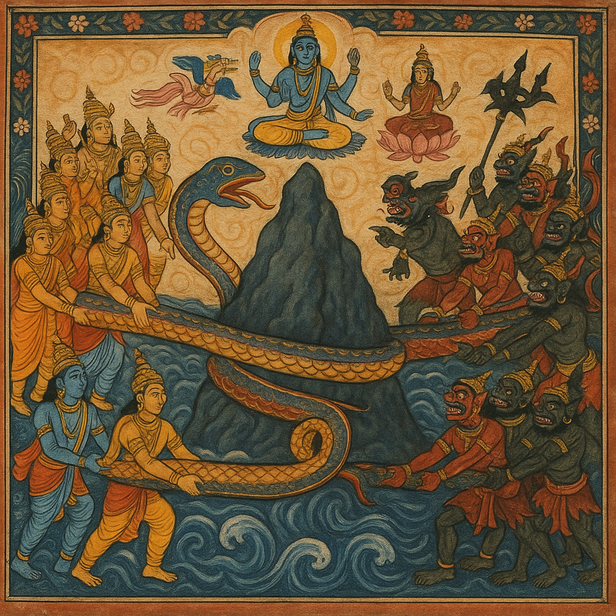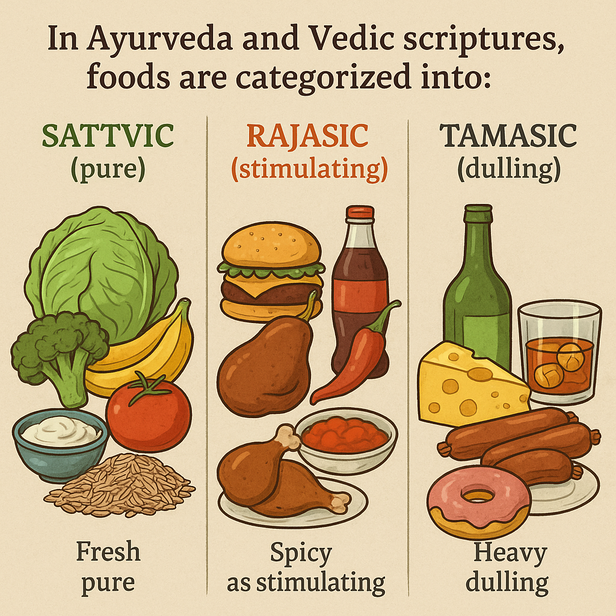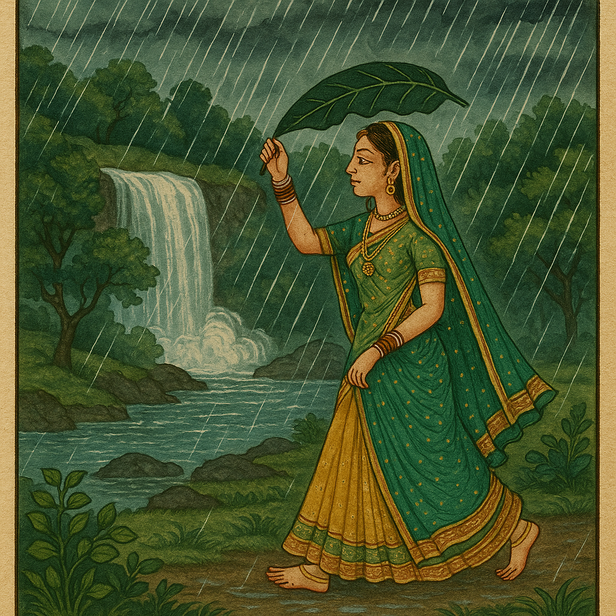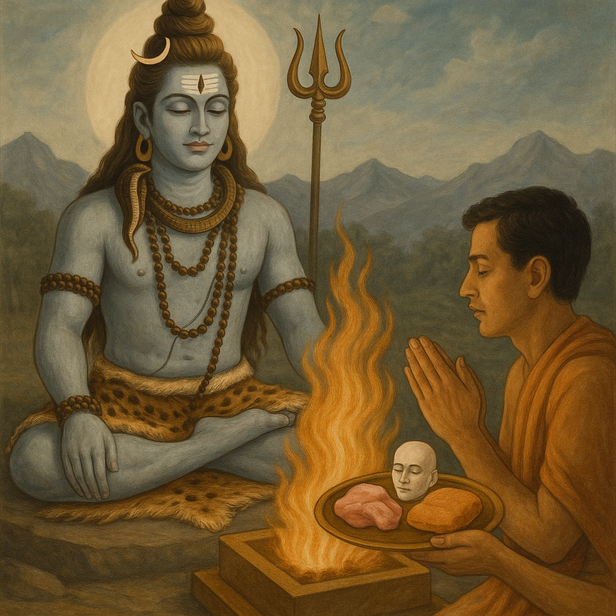Why Lord Shiva’s Pain Changed What We Eat in Sawan
Noopur Kumari | Jun 30, 2025, 09:00 IST
( Image credit : Pexels, Timeslife )
Every Sawan, millions silently give up garlic, onion, and meat—but why? Is it just tradition, or is your plate carrying the weight of a cosmic sacrifice? Hidden in the folds of ancient Puranas is a soul-stirring story of Shiva drinking poison to save the universe. What we eat—or avoid—isn’t just food, it’s devotion. This powerful tale will change how you see Sawan, Shiva, and the choices we make in his name.
Sawan isn’t just another month in the Hindu calendar—it’s a time when hearts melt into devotion and souls seek the shelter of Lord Shiva. Across India, people fast, visit temples, and offer water to Shivlingas, but there’s another lesser-known tradition: avoiding certain foods. Why? Is it about health, or something much more sacred? The answer lies deep within the pages of the Shiva Purana and Vedic texts—a tale of poison, sacrifice, and divine love.

The root of Sawan’s food restrictions lies in the epic story of Samudra Manthan, the churning of the ocean. When gods and demons churned the Kshir Sagar (cosmic ocean) for amrit (nectar of immortality), not only divine treasures but also halahala—a deadly poison—emerged. The poison was so powerful, it threatened to destroy all of creation.To save the world, Lord Shiva selflessly drank the venom. His throat turned blue from the heat of the poison, giving him the name Neelkanth. During this time, gods and sages began offering him cooling herbs, water, and light foods. That’s why during Sawan, we avoid heat-generating and impure foods—to symbolically ease Shiva’s suffering and show gratitude for his sacrifice.

According to Ayurveda and Vedic scriptures, foods are categorised into Sattvic (pure), Rajasic (stimulating), and Tamasik (dulling) energies. Onion and garlic fall under Tamasik and Rajasic categories—they stir up anger, lust, and restlessness. During Sawan, when the focus is on spiritual growth, calmness, and devotion, eating these foods can disrupt that inner peace. Avoiding them is not about punishment—it’s about the purity of the body and mind, aligning ourselves with Shiva’s calm and meditative energy.

Sawan is a month of Brahmacharya (celibacy), tapasya (penance), and ahimsa (non-violence). Consuming meat or alcohol during this time is believed to disturb the vibrations of discipline and devotion. In many scriptures, it is said that those who observe strict satvik living during Sawan earn the blessings of Shiva tenfold.Moreover, Lord Shiva, although known for his wild and unpredictable side, is also the master of yog and self-restraint. Abstaining from meat is a way to walk on his path of inner control and compassion.

Sawan falls during the monsoon season. In Ayurveda, this is a time when the digestive system is naturally weak, and the body is more prone to infections. Ancient sages, who lived in harmony with nature, advised avoiding rich, oily, or fermented foods during this period. So while the practice has deep spiritual roots, it also makes perfect sense scientifically. Avoiding heavy or impure foods during Sawan is a way of caring for your inner temple—your body, just as you care for Shiva’s.

Fasting during Sawan isn’t just about skipping meals—it’s an emotional offering. It’s a silent prayer that says, “I choose devotion over desire.” By giving up favorite foods, we symbolically offer our ego, cravings, and comforts to Lord Shiva. It’s not about what you eat or don’t eat—it’s about the love behind that sacrifice. Each missed bite becomes a whispered Om Namah Shivaya. Each craving turned away becomes a petal at his feet. That’s the real essence behind this tradition—surrender, in its purest form.
The foods we avoid in Sawan are not banned—they are simply offered at the altar of devotion. These ancient rituals, rooted in stories and scriptures, gently guide us toward mindfulness, purity, and love. Behind every grain of food avoided lies a story of divine sacrifice, cosmic balance, and emotional healing. So this Sawan, when you skip that onion-filled dish or say no to something tempting, remember—it’s not a restriction. It’s a blessing in disguise. A way to walk with Shiva, if only for a few steps, on his timeless path of compassion and inner stillness.
Explore the latest trends and tips in Health & Fitness, Travel, Life Hacks, Fashion & Beauty, and Relationships at Times Life!
1. The Churning of the Ocean and Shiva’s Sacrifice

Churning Cosmic Ocean
( Image credit : Times Life Bureau )
The root of Sawan’s food restrictions lies in the epic story of Samudra Manthan, the churning of the ocean. When gods and demons churned the Kshir Sagar (cosmic ocean) for amrit (nectar of immortality), not only divine treasures but also halahala—a deadly poison—emerged. The poison was so powerful, it threatened to destroy all of creation.To save the world, Lord Shiva selflessly drank the venom. His throat turned blue from the heat of the poison, giving him the name Neelkanth. During this time, gods and sages began offering him cooling herbs, water, and light foods. That’s why during Sawan, we avoid heat-generating and impure foods—to symbolically ease Shiva’s suffering and show gratitude for his sacrifice.
2. Onion, Garlic, and Tamasik Energy

Ayurvedic Food Energies
( Image credit : Times Life Bureau )
According to Ayurveda and Vedic scriptures, foods are categorised into Sattvic (pure), Rajasic (stimulating), and Tamasik (dulling) energies. Onion and garlic fall under Tamasik and Rajasic categories—they stir up anger, lust, and restlessness. During Sawan, when the focus is on spiritual growth, calmness, and devotion, eating these foods can disrupt that inner peace. Avoiding them is not about punishment—it’s about the purity of the body and mind, aligning ourselves with Shiva’s calm and meditative energy.
3. Meat, Alcohol, and the Vow of Non-Violence

Brahmacharya
( Image credit : Freepik )
Sawan is a month of Brahmacharya (celibacy), tapasya (penance), and ahimsa (non-violence). Consuming meat or alcohol during this time is believed to disturb the vibrations of discipline and devotion. In many scriptures, it is said that those who observe strict satvik living during Sawan earn the blessings of Shiva tenfold.Moreover, Lord Shiva, although known for his wild and unpredictable side, is also the master of yog and self-restraint. Abstaining from meat is a way to walk on his path of inner control and compassion.
4. The Role of the Monsoon and Health in Vedic Thought

Monsoon Sawan Showers
( Image credit : Times Life Bureau )
Sawan falls during the monsoon season. In Ayurveda, this is a time when the digestive system is naturally weak, and the body is more prone to infections. Ancient sages, who lived in harmony with nature, advised avoiding rich, oily, or fermented foods during this period. So while the practice has deep spiritual roots, it also makes perfect sense scientifically. Avoiding heavy or impure foods during Sawan is a way of caring for your inner temple—your body, just as you care for Shiva’s.
5. Fasting as a Form of Emotional Surrender

Lord Shiva
( Image credit : Times Life Bureau )
Fasting during Sawan isn’t just about skipping meals—it’s an emotional offering. It’s a silent prayer that says, “I choose devotion over desire.” By giving up favorite foods, we symbolically offer our ego, cravings, and comforts to Lord Shiva. It’s not about what you eat or don’t eat—it’s about the love behind that sacrifice. Each missed bite becomes a whispered Om Namah Shivaya. Each craving turned away becomes a petal at his feet. That’s the real essence behind this tradition—surrender, in its purest form.
A SACRED CHOICE, NOT A RULE
Explore the latest trends and tips in Health & Fitness, Travel, Life Hacks, Fashion & Beauty, and Relationships at Times Life!
